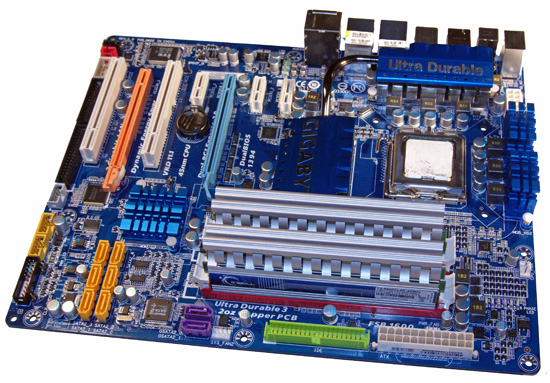Friday, February 27, 2009
"Crispest" racquets...
Am I wrong?
http://tt.tennis-warehouse.com/showpost.php?p=3170397&postcount=24
Thursday, February 26, 2009
Dumb Money
In the past few months, we've been riveted and disgusted by the exploits of scamsters like Bernard Madoff and Allen Stanford (characters who, if they didn't exist, would have to be invented by Tom Wolfe). It's both easy and convenient to hold them up as the ultimate symbols of the just-ended boom. But we shouldn't. While there was some crime in the mortgage industry, law-abiding, respectable, upstanding citizens caused the overwhelming majority of financial losses suffered thus far. Skeezy money managers and mobbed-up boiler rooms didn't create the economic catastrophe. It was visited on us by firms in the Dow Jones Industrial Average and S&P 500—companies that trace their origins back to the 1800s, run by graduates of Yale and Harvard. The people who blew up the system weren't anarchists. They were members of the club: central bankers and private-equity honchos, hedge-fund geniuses and Ph.D. economists, CEOs and investment bankers. And the (overwhelmingly legal) con they perpetuated on themselves, their colleagues, their shareholders and creditors, and, ultimately, on us taxpayers makes Madoff's sins look like child's play.
That's one of the central arguments of my book, Dumb Money: How Our Greatest Financial Minds Bankrupted the Nation, which has just been published as an e-book. (You can buy a digital version, for the Kindle or Sony Reader, or an audio version. Readers interested in seeing a PDF of the first chapter or learning about a paper version should send an e-mail to: dumbmoneybook@gmail.com)
My book explains how during the late, great credit bubble, an Era of Cheap Money devolved into an Era of Dumb Money, and then into an Era of Dumber Money. The culture of Wall Street and the rise of the shadow banking system spawned reckless, largely unregulated lending, borrowing, and trading, a financial culture that preferred short-term fees to long-term gains, and that confused liquidity (access to other people's money) with cash on hand. Looking back, the investors who believed the stories told by Madoff and Stanford—that they could deliver steady, positive, market-beating returns in any type of climate, despite the manifest failure of virtually every other money manager to do so—were obviously foolish. But our best financial minds also spun tales and theories with great assurance, making seemingly irrational and unprecedented activity seem completely sensible. And we bought them.
Tuesday, February 17, 2009
Active Corporate Sponsor
Former brokers say they never understood where the company got all the money to pay for the sponsorships and fancy office digs.
(It's like eating the cake and having it too...)
Monday, February 16, 2009
Тоталитарное vs открытое общество
Тоталитарные режимы в состоянии уморить миллионы человек. Но оказывается, что они не в состоянии их прокормить. Они в состоянии строить ракеты. Но оказывается, что они не в состоянии обеспечить жителей автомобилями. Т.е. они могут позволить себе расстрелять Вавилова, посадить Королева. Но в конечном итоге они не выдерживают научного соревнования с открытым обществом. Потому что основой любого тоталитарного режима является секретность. А секретность противоположна развитию научной мысли.
А во-вторых, при тоталитарном режиме основной инстанцией, которая определяет ценность той или иной научной разработки, является офицер НКВД, а не ученый. И в результате, несмотря на ядерные боеголовки, на ГУЛАГ, даже на единодушную поддержку всей мировой прогрессивной общественности, не важно какого режима – или сталинского Советского Союза, или маоистского Китая, тоталитарные режимы вырождаются...
http://www.echo.msk.ru/programs/code/572416-echo/
Wednesday, February 11, 2009
Adam Smith gets the last laugh
Как оказалось, нет ничего нового в экономической науке или "более сложного", по крайней мере со времен Адама Смита:
“A dwelling-house, as such, contributes nothing to the revenue of its inhabitant,” Smith said in The Wealth of Nations. “If it is lett [sic] to a tenant for rent, as the house itself can produce nothing, the tenant must always pay the rent out of some other revenue.” Therefore Smith concluded that, although a house can make money for its owner if it is rented, “the revenue of the whole body of the people can never be in the smallest degree increased by it”. [281]*
http://www.ft.com/cms/s/0/2802e3a8-f77c-11dd-81f7-000077b07658.html
If You Knew Suze Like We Know Suze
She has less patience for statistics. Although study after study has shown that personal bankruptcies are caused primarily by catastrophic events like divorce, job loss, and, above all, medical bills and that most of us are struggling with a gap between our income growth and the soaring cost of necessities like housing, Suze tends toward psychological causes that invariably blame the victim. Who is struggling these days, according to Suze? "People who grew up without much money and later earn a comfortable living sometimes spend too much to make up for what they didn't get as children. ... People who feel entitled to the good life, or are unconsciously copying a mother or father who lived beyond her or his means. ... If you feel the need to impress people with what you have rather than with who you are, you are at high risk for credit card abuse." This from a woman who spends $500,000 a year chartering private jets and who sells "Cruise With Suze" packages on an Italian luxury liner. (She has also hawked for GM, claiming that leasing a luxury car—you know, the kind that people drive to impress others—is a terrific financial decision: "If you ask me, that's smart money!") No wonder she winks more than Sarah Palin, girlfriend.
http://www.thebigmoney.com/articles/impressions/2009/02/10/if-you-knew-suze-we-know-suze


